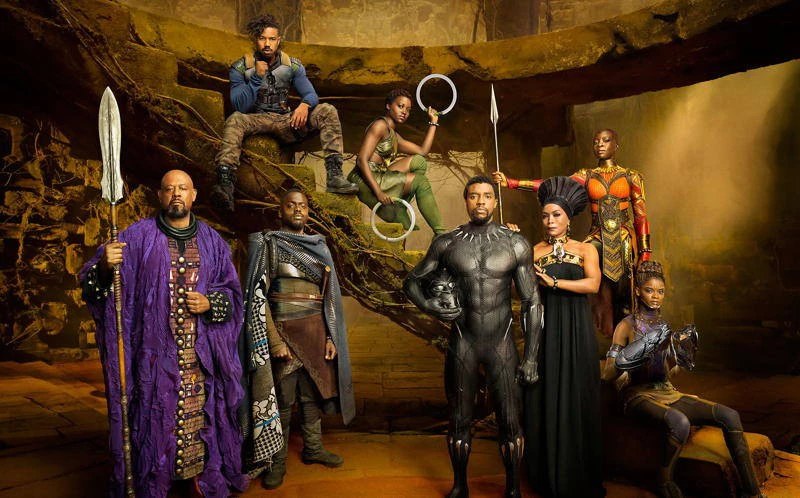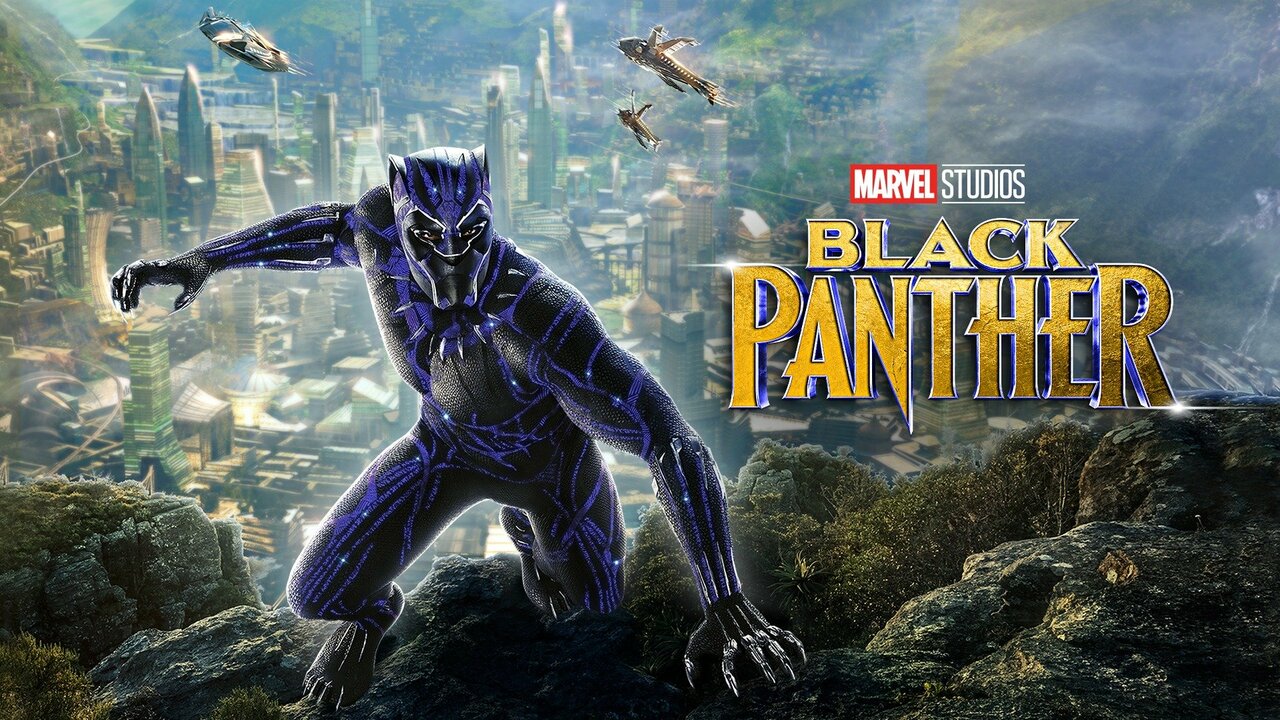Black Panther (2018)

“Black Panther” (2018), directed by Ryan Coogler, is a groundbreaking film within the Marvel Cinematic Universe (MCU) that has garnered widespread acclaim for its unique portrayal of African culture, complex characters, and impactful themes. Set against the backdrop of the fictional nation of Wakanda, the film explores themes of identity, leadership, and social justice through the lens of the superhero genre.
At the heart of “Black Panther” is the story of T’Challa, portrayed by Chadwick Boseman, who returns to Wakanda to assume the mantle of king following the death of his father, King T’Chaka. Wakanda is depicted as a hidden, technologically advanced African nation, rich in vibranium, a powerful resource that has kept it isolated from the rest of the world. T’Challa’s ascension to the throne and his role as the Black Panther, Wakanda’s traditional protector, sets the stage for a narrative that intertwines personal, political, and cultural elements.
The film begins with T’Challa grappling with the responsibilities of his new role as king. His leadership is immediately tested when Erik Killmonger, portrayed by Michael B. Jordan, emerges as a formidable rival with a claim to the throne. Killmonger’s motivations are deeply personal and rooted in a desire to challenge the status quo of Wakanda’s isolationist policies. He believes that Wakanda should use its advanced technology and resources to liberate oppressed people around the world. This ideological clash between T’Challa and Killmonger forms the central conflict of the film, highlighting a profound debate about the role of power and responsibility.

T’Challa’s character is developed through his interactions with key figures in his life, including his sister Shuri (Letitia Wright), who represents the innovative spirit of Wakanda’s technological advancements; Nakia (Lupita Nyong’o), his former lover and a member of the War Dogs, Wakanda’s undercover operatives; and Okoye (Danai Gurira), the fiercely loyal leader of the Dora Milaje, Wakanda’s elite female warriors. These relationships illustrate the collaborative nature of leadership and the importance of personal connections in shaping a leader’s decisions.
Shuri’s role as the head of Wakanda’s technology department is significant in the film. Her intelligence, creativity, and humor provide a stark contrast to the more traditional and stoic elements of Wakandan royalty. Shuri’s innovations play a crucial role in the battle against Killmonger and demonstrate the film’s emphasis on blending tradition with progress. Her dynamic with T’Challa also underscores the importance of family support and shared values in leadership.

Nakia and Okoye each offer different perspectives on T’Challa’s leadership. Nakia advocates for a more compassionate and outward-looking approach, arguing that Wakanda has a moral obligation to help those in need. Okoye, on the other hand, represents a strict adherence to tradition and loyalty to the throne, even when faced with moral and ethical dilemmas. These differing viewpoints challenge T’Challa to navigate his own beliefs and make decisions that balance tradition with the potential for positive change.
The film’s exploration of Killmonger’s character adds depth to its narrative. Killmonger’s background as a disenfranchised African American with a personal vendetta against Wakanda’s monarchy provides a powerful counterpoint to T’Challa’s ideals. His complex motivations and tragic backstory evoke both sympathy and antagonism, making him one of the most compelling villains in the MCU. Killmonger’s challenge to Wakanda’s isolationist policies and his vision of global revolution force T’Challa to confront uncomfortable truths about his own nation and its role in the world.

“Black Panther” also stands out for its visual and cultural significance. The film’s depiction of Wakanda is a celebration of African culture and heritage, blending traditional elements with futuristic technology. The use of vibrant costumes, elaborate set designs, and a culturally rich soundtrack contributes to the film’s immersive and authentic portrayal of a fictional African society. This representation has been praised for its positive impact on cultural representation in mainstream cinema.
The film’s climax and resolution reflect T’Challa’s growth as a leader. Following his confrontation with Killmonger, T’Challa embraces a new vision for Wakanda, one that involves sharing its resources and technology with the rest of the world. This decision represents a shift from isolationism to a more inclusive and proactive stance, aligning with Nakia’s earlier advocacy and addressing Killmonger’s critiques.

In summary, “Black Panther” (2018) is a landmark film that combines superhero action with profound cultural and political themes. Through the character of T’Challa and his interactions with others, the film explores concepts of leadership, heritage, and responsibility. The film’s celebration of African culture, along with its nuanced portrayal of complex characters and societal issues, makes it a significant and impactful addition to the MCU and a culturally resonant piece of cinema.










